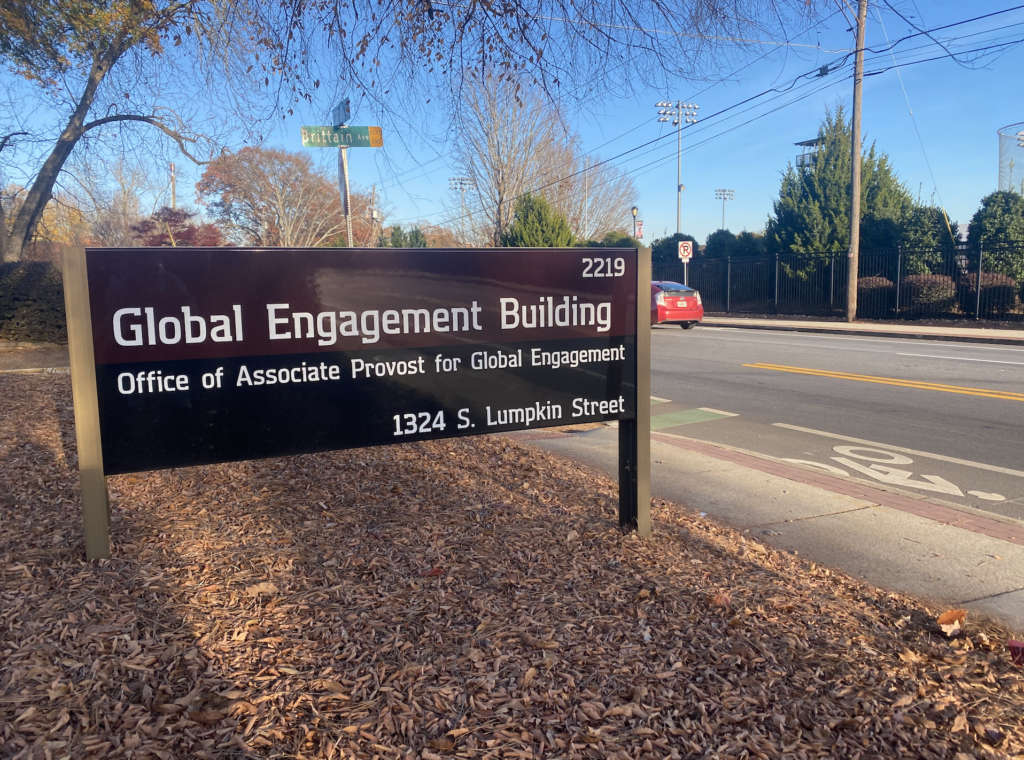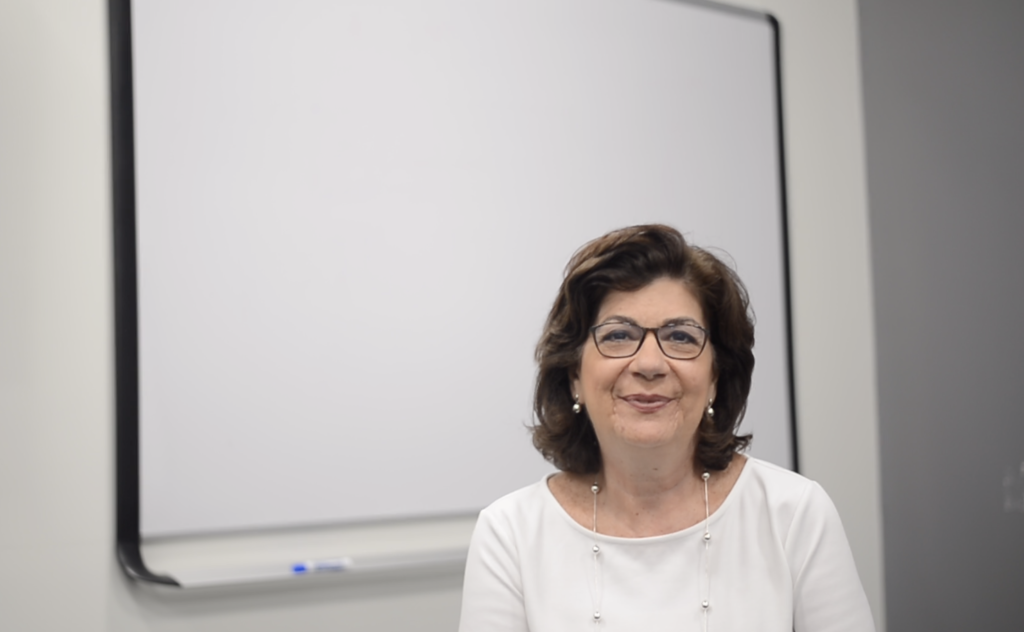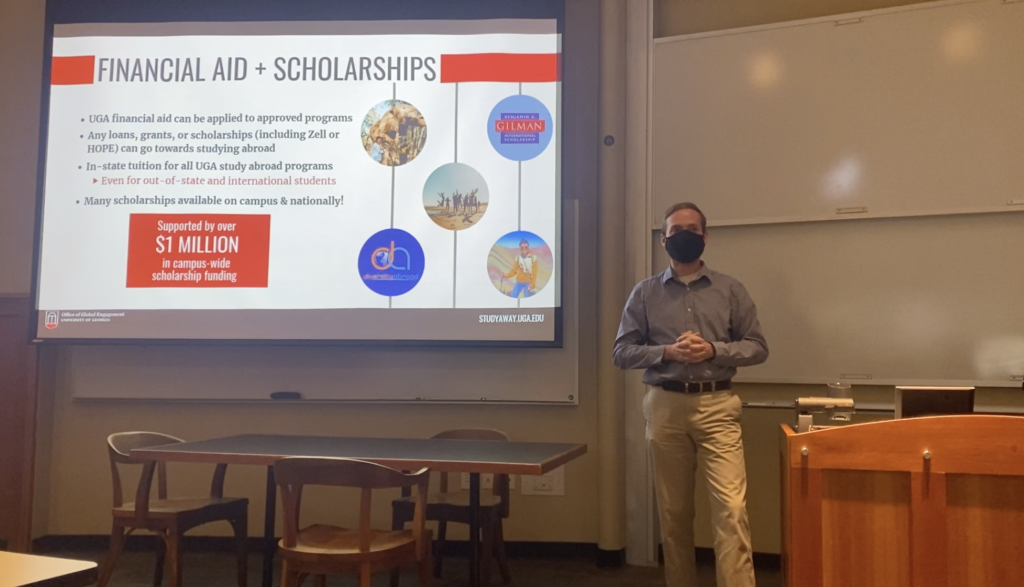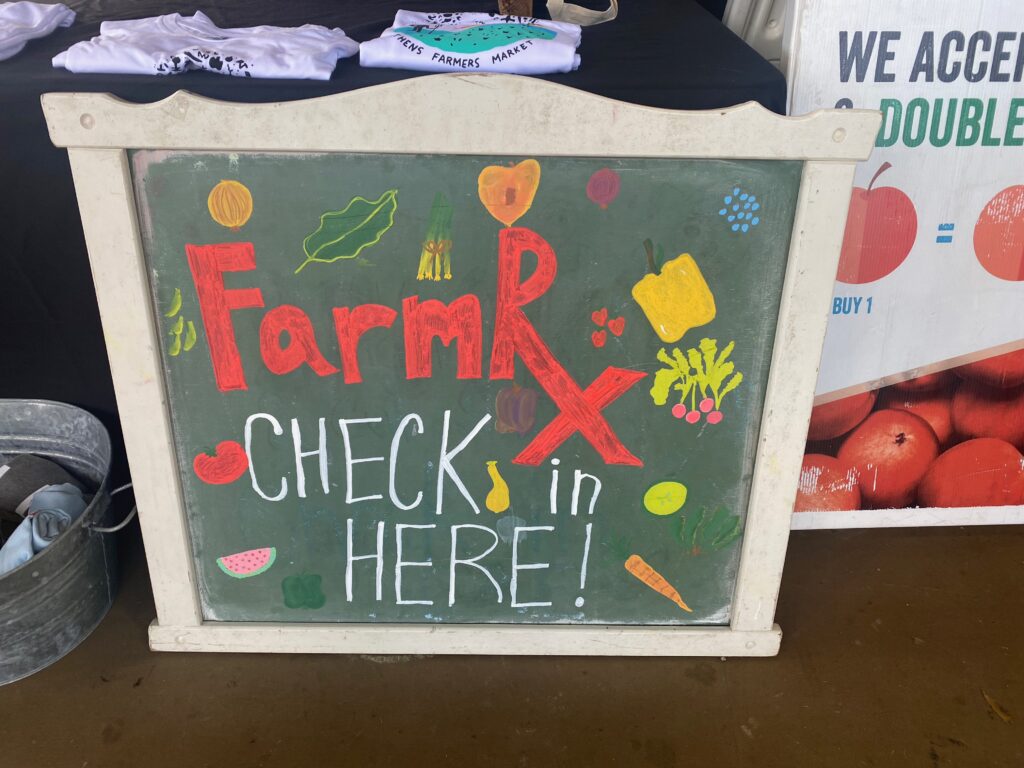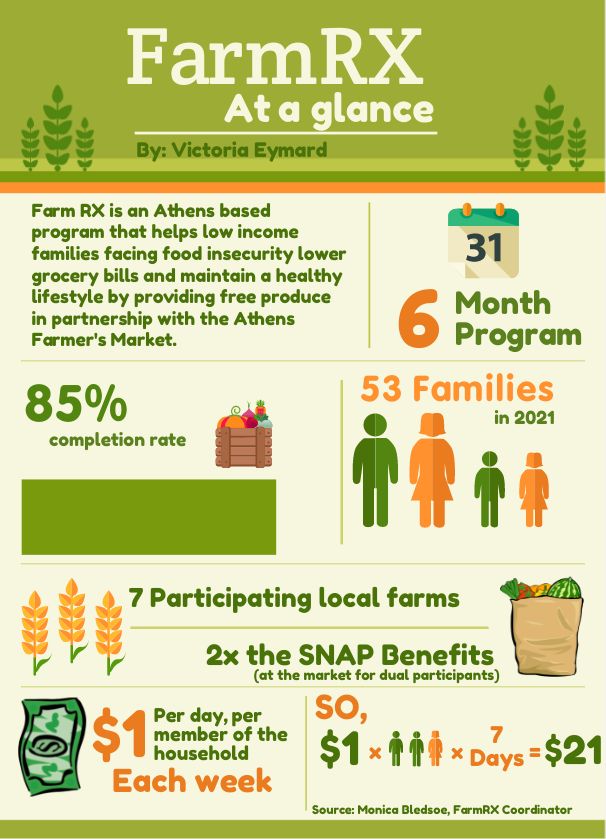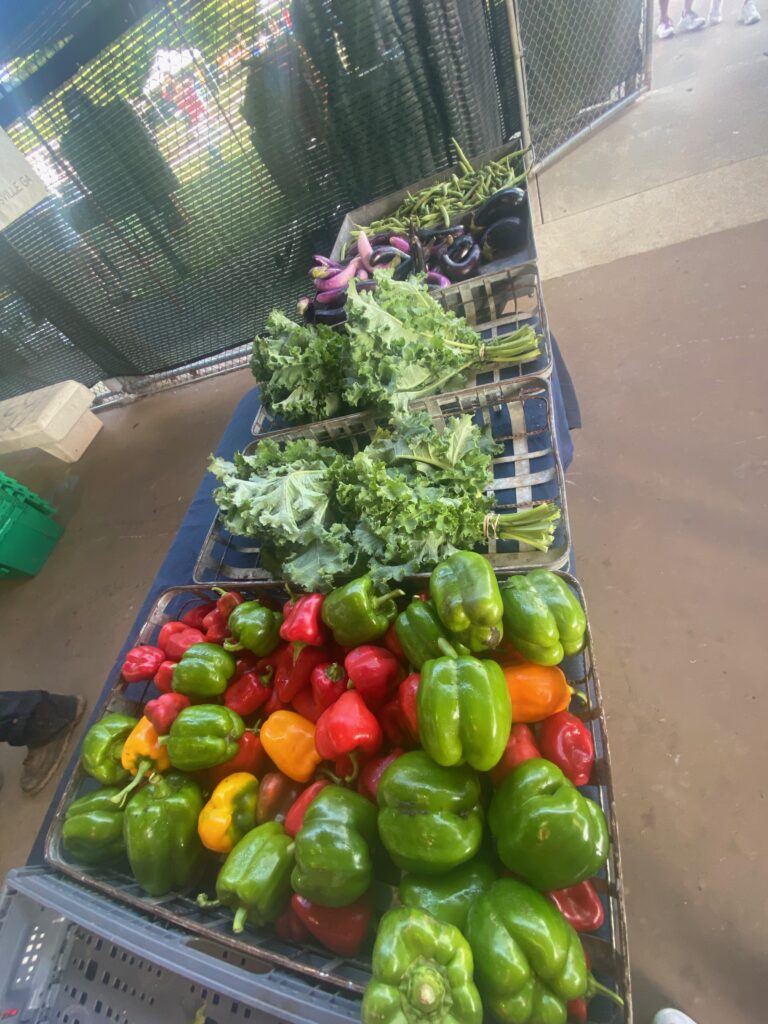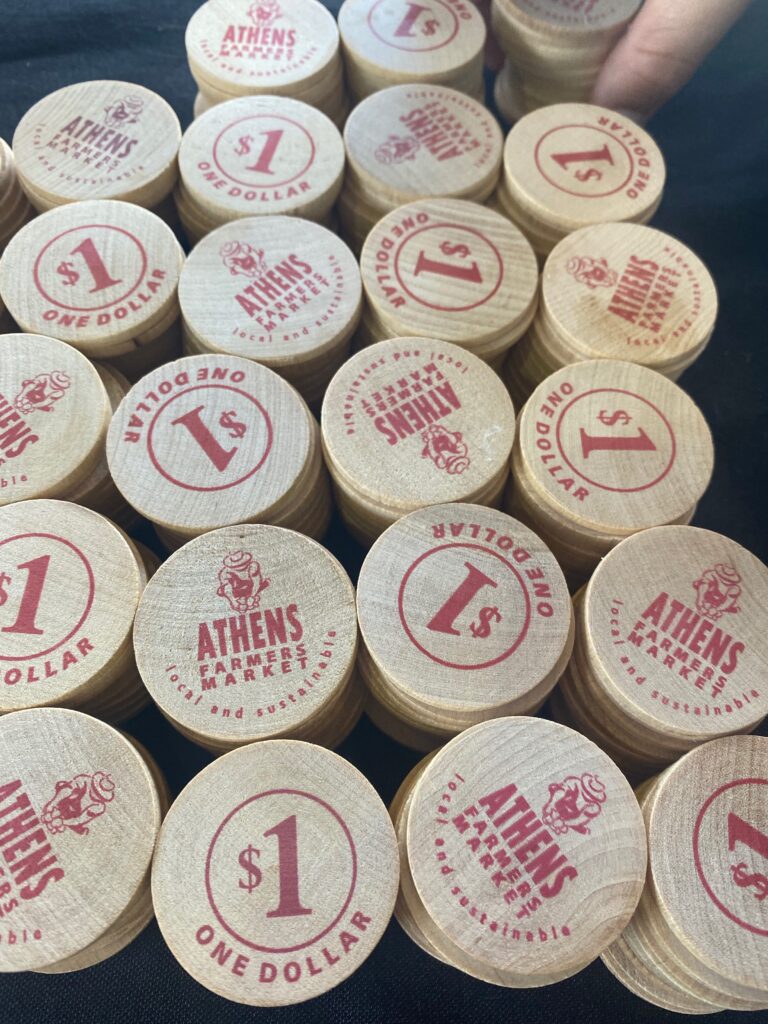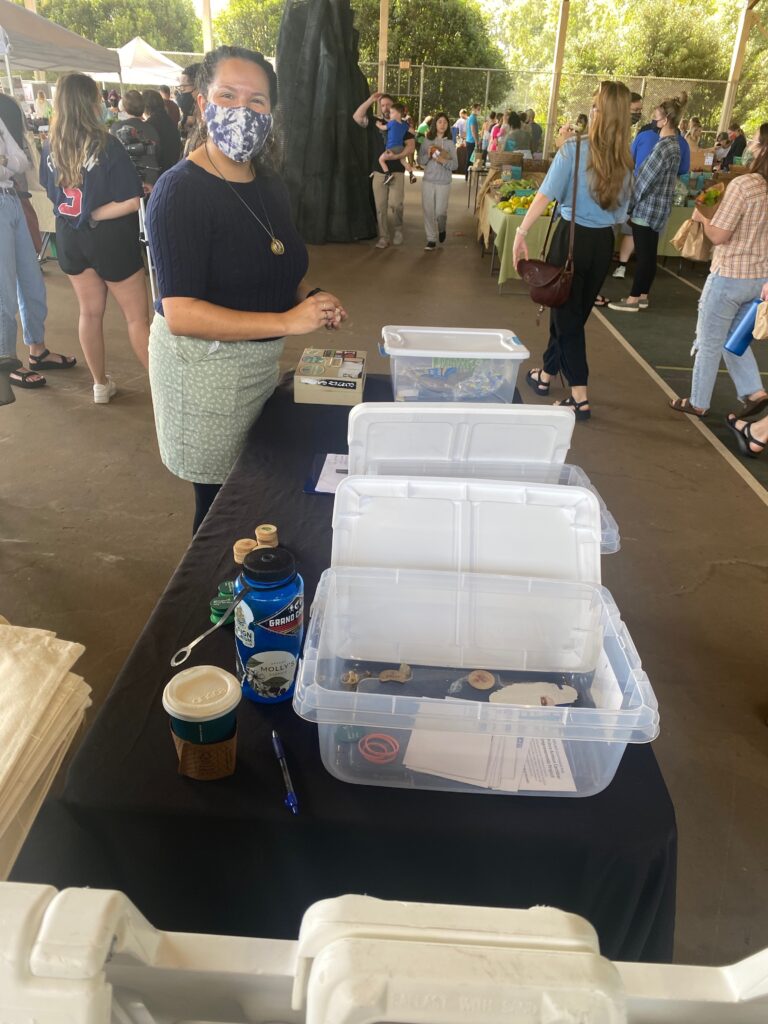Patti Smith is a local small business owner and the namesake of Patti Pots. Her business? Painting Patti Pots of course! Patti Pots are terra-cotta pots that have found new life after being covered in unique and colorful designs to bring a fresh twist in to the garden. Originally, Patti started painting pots for her own garden but decided to turn the hobby in to a business after friends and family started asking to buy them.
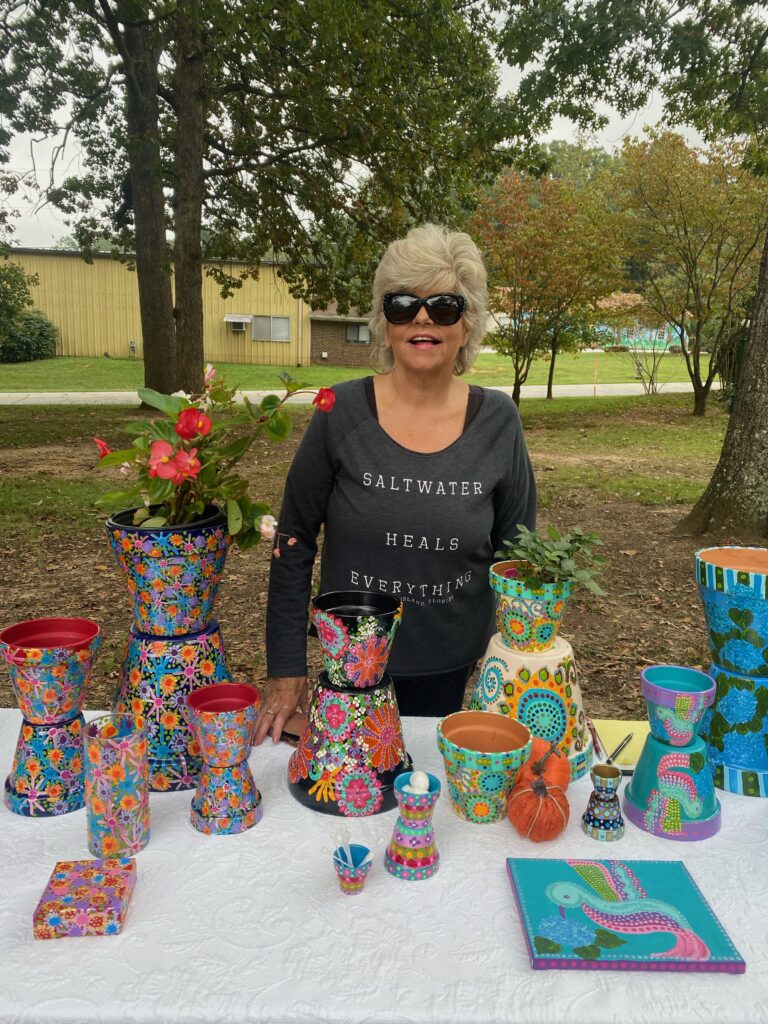
In 2011, Patti’s close friend, Terri, passed away from breast cancer. Patti, pictured above at her booth at the Marigold Farmer’s Market in Winterville, Georgia, was devastated and was looking for a way to channel her grief when she began painting. That is how Patti Pots was born. (Photo by Victoria Eymard on Oct. 2, 2021)
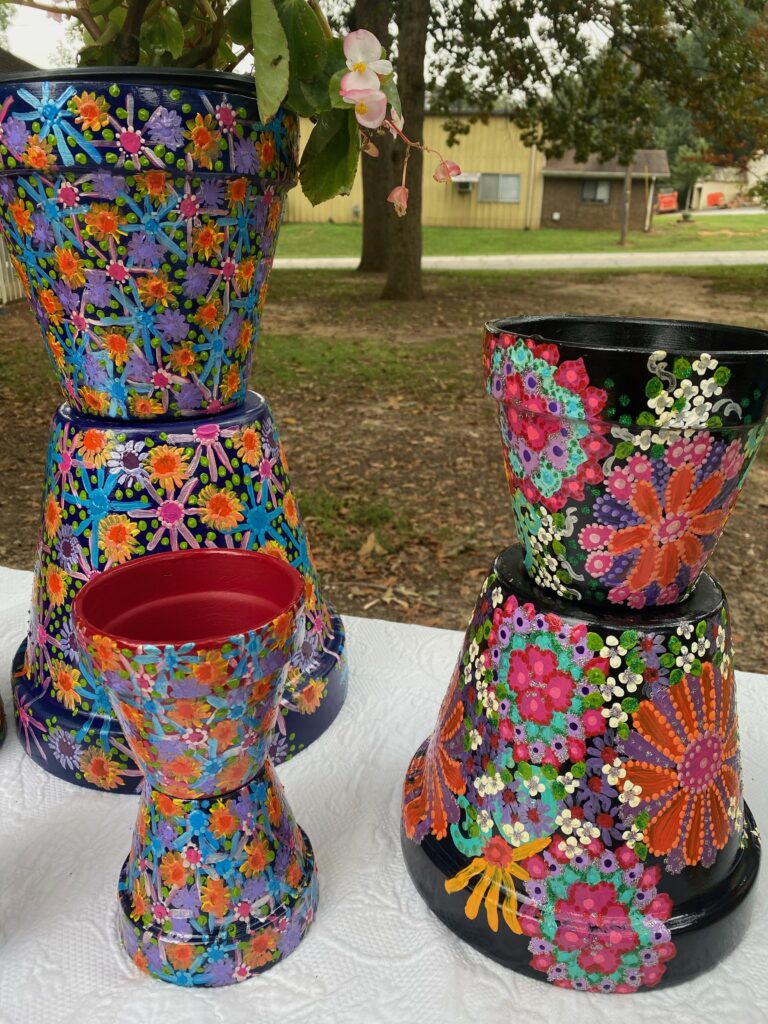
Patti began finding old terra-cotta pots and refurbishing them for her garden by painting them with patterns, flowers, and animals, all in bright colors. The process of creating something new from something formerly looked over and discarded was cathartic work for Patti. (Photo by
Victoria Eymard, Oct 2, 2021 in Winterville, GA)
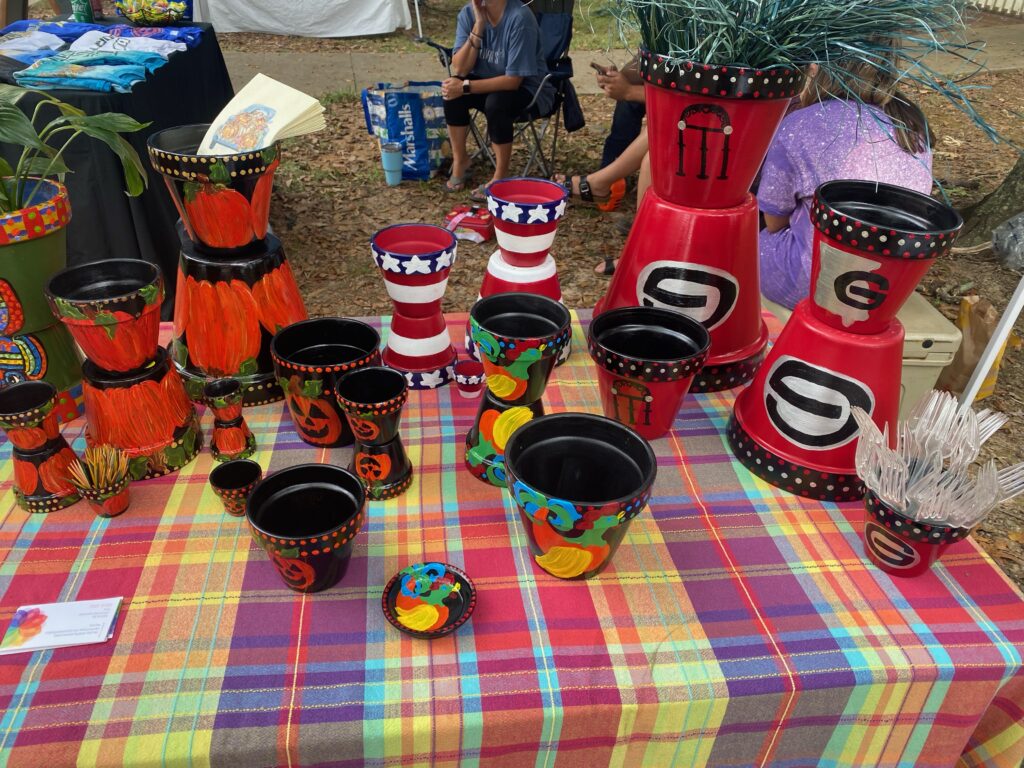
At first, Patti’s painted pots were just put to use in her own garden, but over time friends and family came to admire them and would ask Patti if they could purchase them. That’s when she realized she might’ve stumbled on to a good idea. (Photo by Victoria Eymard, Oct 2, 2021 in Winterville, GA)
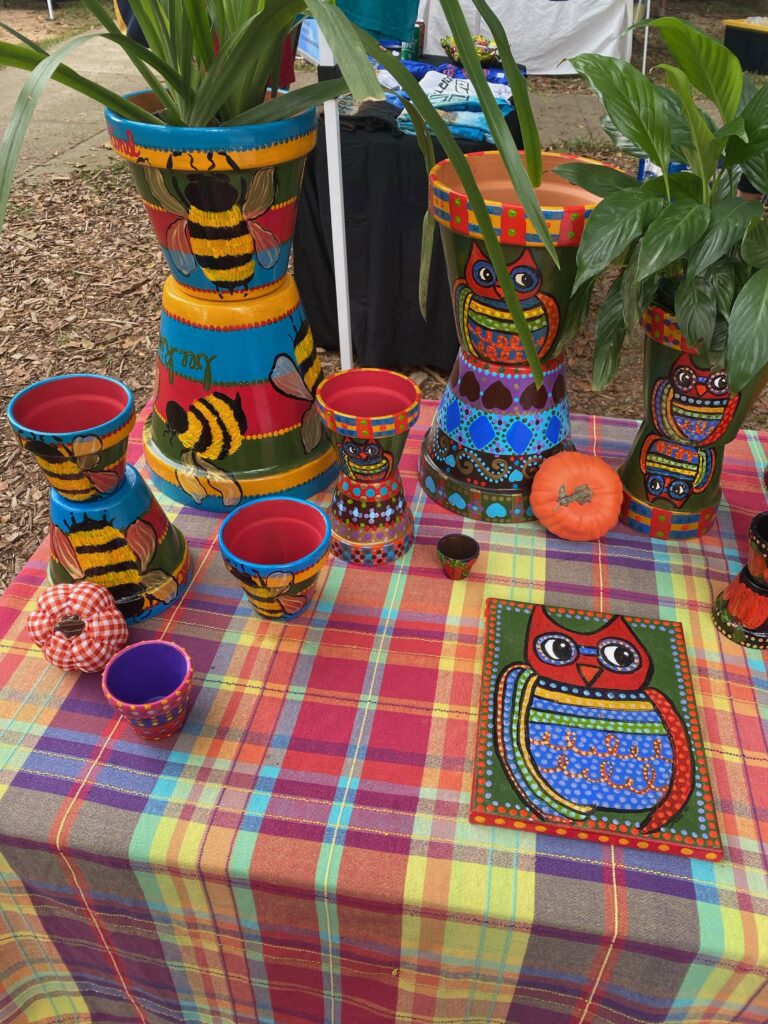
Four years ago, Patti decided to leave her job as a paralegal and pursue her pot painting business full-time. “I was divorced, my son was grown with kids of his own, so I figured if I didn’t do it then I would never do it.” says Patti. (Photo by Victoria Eymard, Oct 2, 2021 in Winterville, GA)
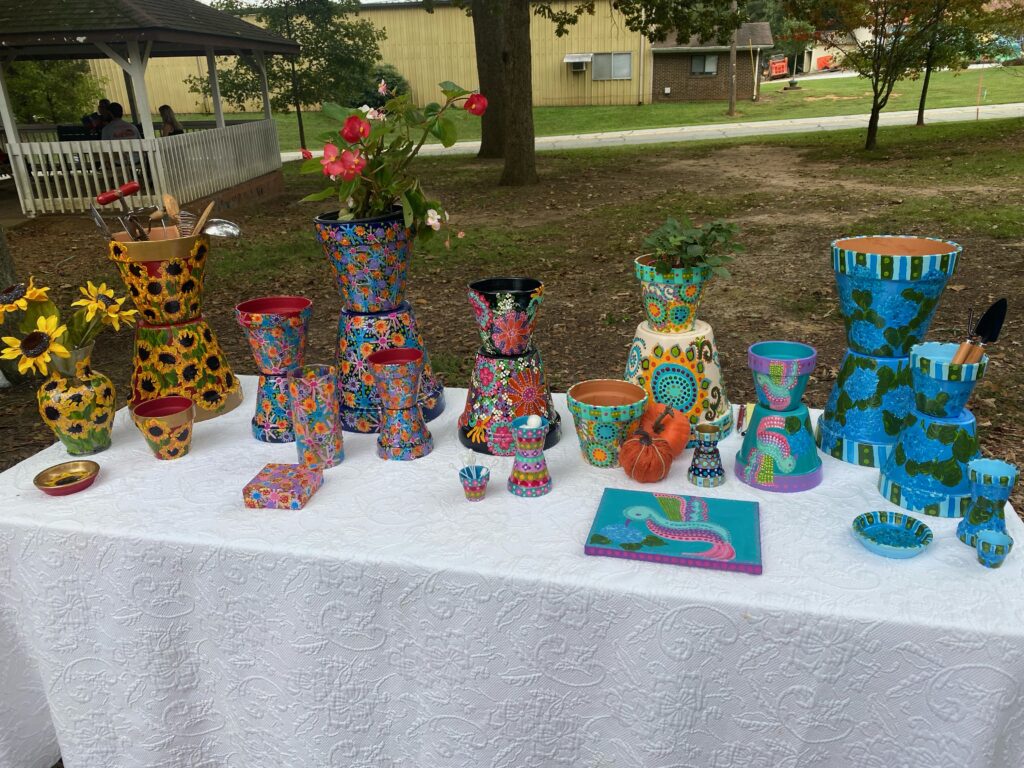
At first, Patti was selling her pots out of the trunk of her car. “My family thought I was crazy.” she says. But now, you can find Patti’s Pots every Saturday morning at the Marigold market in Winterville. (Photo by Victoria Eymard, Oct 2, 2021 in Winterville, GA)
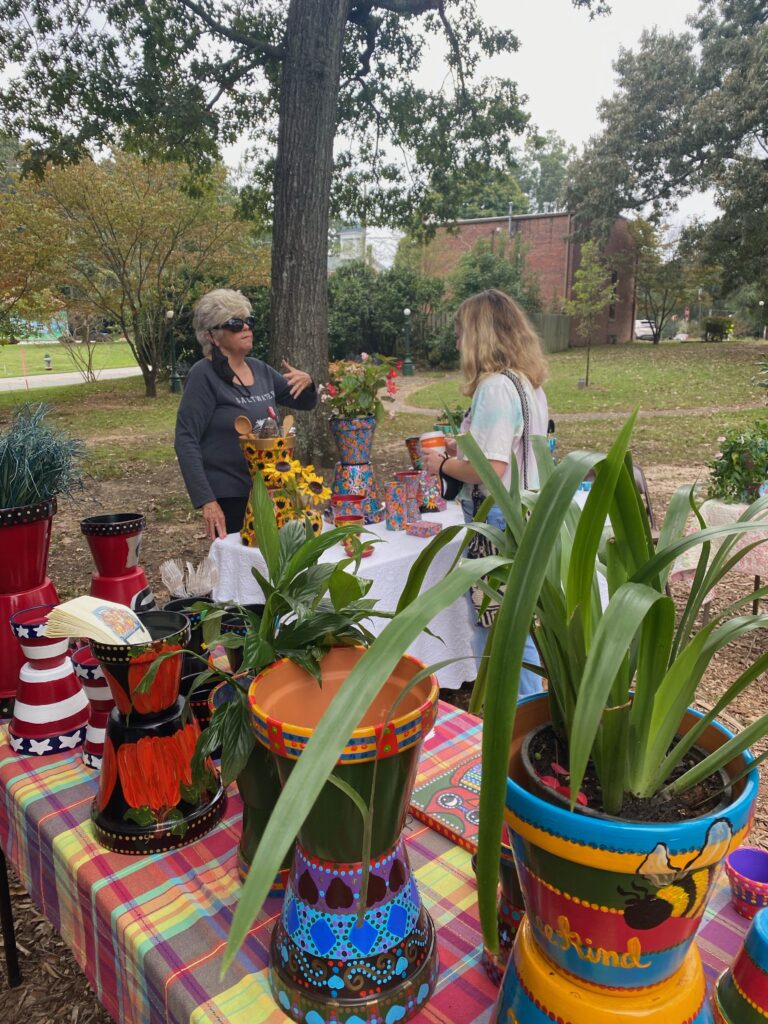
Patti, pictured here conversing with Quinn O’Brien, feels that her business was really inspired by her late friend Terri. “I wanted to call it Terri Pots, but Patti Pots just sounded better,” Patti jokes. O’Brien, a patron at the booth, remarked that Patti could incorporate her friend’s name by using the phrase “Terri-cotta” instead of terra-cotta. (Photo by Victoria Eymard, Oct 2, 2021 in
Winterville, GA)
“Grief is like a wave, it’s like standing with your back to the waves and not knowing when that big one is going to hit, but it’s going to hit when you least expect it and you can let it drown you or you can ride it and that’ll bring you back to shore.”
Patti Smith
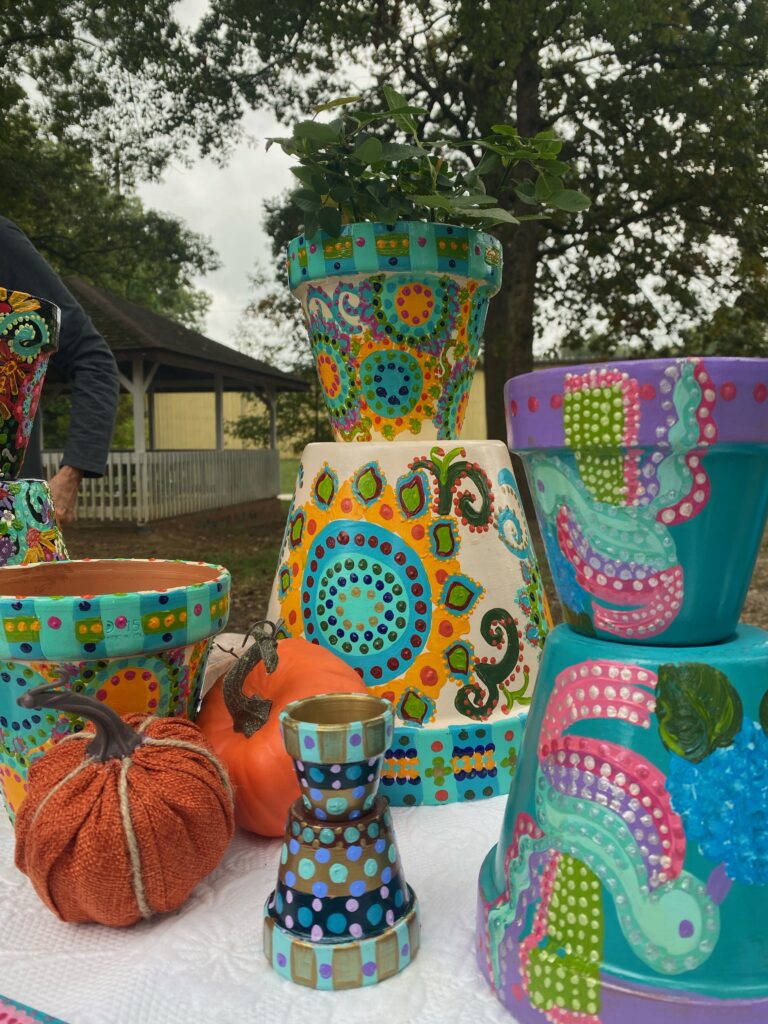
Patti, pictured here, shares her work and her story as an example of how something beautiful and full of joy can be created out of tragedy. “Grief is like a wave, it’s like standing with your back to the waves and not knowing when that big one is going to hit, but it’s going to hit when you least expect it and you can let it drown you or you can ride it and that’ll bring you back to
shore,” Patti Smith. (Photo by Victoria Eymard, Oct 2, 2021 in Winterville, GA)
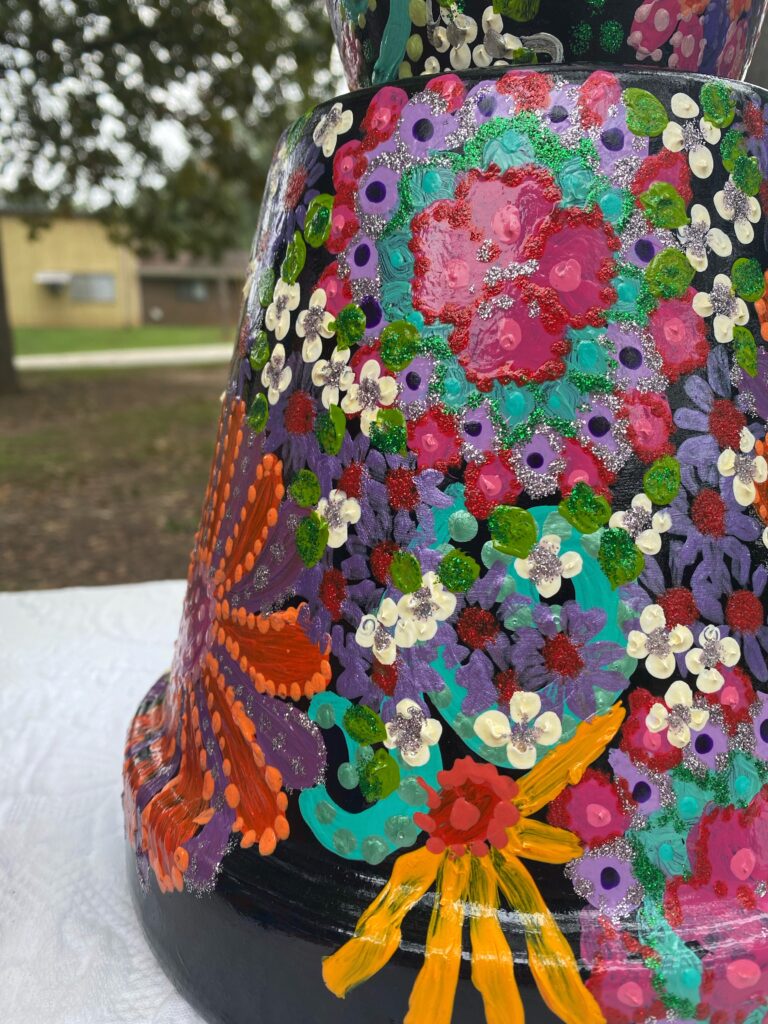
Patti Pots can be found Saturdays at the Marigold Farmer’s Market from 10am-2pm or on Facebook at Patti Pots. (Photo by Victoria Eymard, Oct 2, 2021 in Winterville, GA)
Article and photos by: Victoria Eymard


